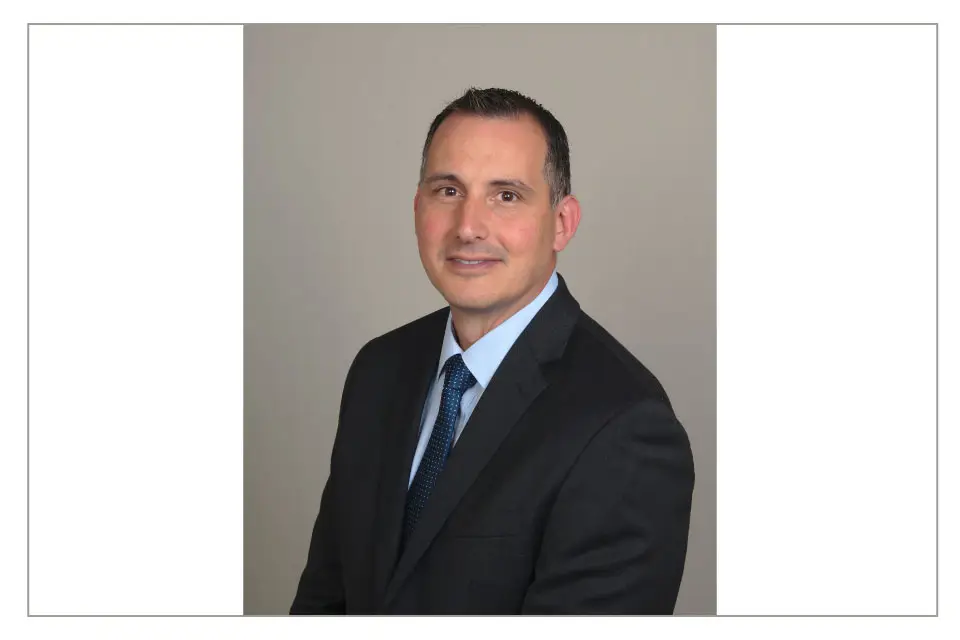Dominick has had a successful journey from chemical engineer to the VP and GM at Gleason Works Rochester, an eminent machine tool manufacturing company, as a first-generation American. His parents immigrated to upstate New York before settling in the Albany area for a time. Later, the family moved to Cleveland, Ohio for work. Dominick was the first person in his family to go to college. He attended Case Western Reserve University (CWRU) graduating with a chemical engineering degree. After graduation, one of Dominick’s professors encouraged him to pursue a job at a local company, Lincoln Electric. He started his career there in Research and Development (R&D) and then moved on to process engineering. He then had an opportunity to work with a team who were tasked with building a new factory in Toronto, and he learned a lot and liked operating outside the mothership. His VP identified him as a high-potential candidate and offered him a global assignment in Italy starting in the Quality Organization. By this time, Dominick had gotten married, and just two months after his wedding, he and his wife moved to Italy.
The site in Italy was a recent acquisition by Lincoln Electric that produced high volume, low complexity consumables for the welding industry that was not profitable. One hundred forty people worked at this site with about 80% of people working in direct labor and 20% working in administrative jobs. Dominick made strides in his role and moved from the Quality role to a leadership role which empowered him to make strategic decisions, divested assets, restructured the site to be operations-centric, and turned it around from a loss-making unit to a profitable unit. Dominick explained that the business, “Had been losing money since we acquired it, and [we] actually made it a small contributor in terms of money.” Given the success of his first international assignment, Dominick was then promoted and relocated to Holland as part of his next assignment.
This new business had a higher complexity, with chemically engineered products that sold in the local market but couldn’t compete effectively outside Benelux, the broader market of Belgium, the Netherlands, and Luxembourg. In this position, Dominick was expected to pare down the business to what it did well and move the manufacturing of some of the product lines into the Eastern European market. But then the 2008 Great Recession hit, the plans shifted, and the new goal was to simplify the site. Dominick was given free rein and he optimized the operations by moving all operations under one roof, supplying other logistics under one roof, optimizing the number of people and making the business stronger. Dominick said, “That was the Dutch story, and I would say this was the toughest role I’ve ever had.”
Once again based on his stellar performance, Dominick was promoted to the functional role of European Director in charge of all manufacturing sites in Europe including supply chain and warehousing. In this role, Dominick optimized the European manufacturing footprint, by moving welding equipment manufacturing from Italy to Poland and created a strong position in both welding equipment and consumables. At this point, Dominick had lived abroad for 13 years and made his way back to the USA by taking a leadership role in the new Lincoln Electric Automation business that the company had invested in. In this business, they had a standardized automation solution that they tweaked for each customer, and in this division, he had more of a customer-facing role and enjoyed the feeling of creating a solution that made a difference for the customer.
Dominick received a call from a recruiter, which brought him to his current position as an executive at Gleason. He would characterize Gleason as a highly technical business, a gear services company that works on everything from design software to machines that manufacture gears, to metrology equipment, and the tools that support all of that. Dominick emphasized that “Gleason is unique in the industry because it has 2200 team members working across several continents, which are able to provide a world-class solution that is backed with “service and support on a global scale.”
He has learned many lessons in manufacturing, and here are his top three:
Focus.
“Trying to juggle too many things doesn’t work, there must be priorities and focus. Things need to be prioritized under ‘have to have,’ not under ‘what’s nice to have.’ Try to limit your focus to three things, and not more than five.”
Self-reflection.
“You get to a point where you start trying to understand why you get the behaviors you get, and why people around you are responding the way they are. All of these are growth points.”
Mental Flexibility.
“You have to be adaptable to all situations. You can be a genius, but if you’re too mentally rigid or obtuse, your ceiling is limited.”
As Dominick reflects back on his career, he notes his biggest challenge has been the acquisition in Italy, and the turnaround of that acquisition. He notes that everyone accepted the challenge and the effort in, what was one of the most competitive environments you could be in, as he was asking, “Are they gonna close us down and do we have a future?” It pushed the team forward and aligned them with a single-minded purpose that resulted in a successful outcome.
Dominick feels people should consider a career in engineering and manufacturing, so they have a purpose: a good, solid, non-superfluous purpose. Having worked globally, he has seen the respect that people in manufacturing receive for solving problems. People in manufacturing create real value and are innovative. Manufacturing includes creating ideas and solutions and making a real impact:
"You create something that wasn’t there the day before."
Dominick P | VP and GM, Gleason Works, Rochester NY
Dominick also believes in constantly learning, reading publications such as the Wall Street Journal, and absorbing information from every channel.



